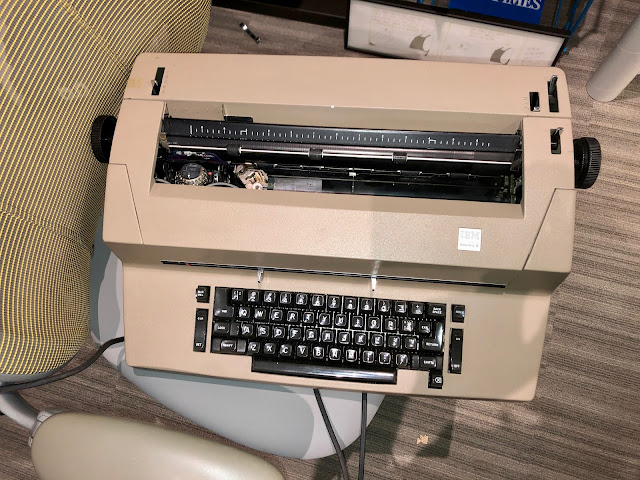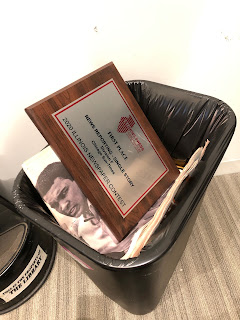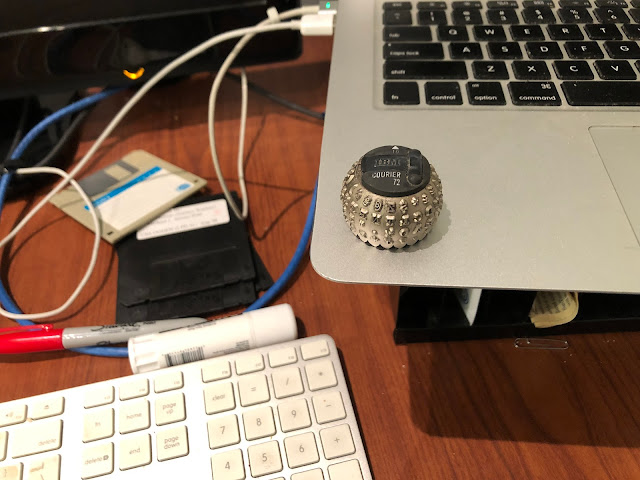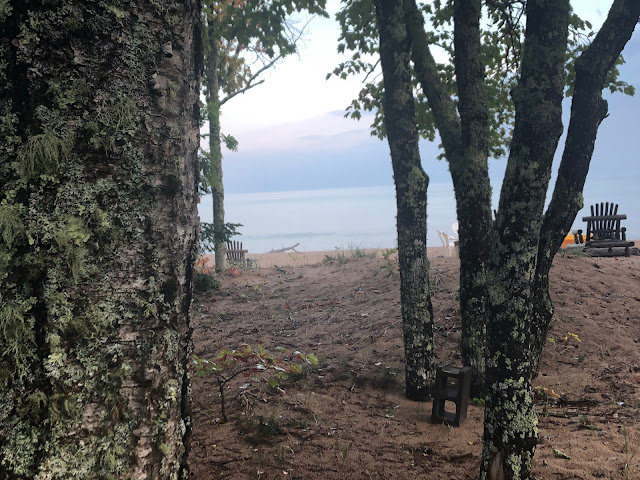I didn't keep many of the books lining my office off the third floor newsroom at 30 North Racine when I closed it up two weeks ago. But I held onto a few. Some I intended to read, like "Freak Kingdom," by Timothy Denevi, a 2018 look at Hunter S. Thompson's personal war against American fascism — which I did indeed begin a few days back, and am finding a truly excellent book that is sadly topical.
Others were so odd I just couldn't part with them, like "Direct Line Distances" by Gary L. Patrick and Marilyn J. Modlin, which is exactly that: a book of tables of the mileage between various American cities. The plan is to ask my grandchildren, when they finally arrive and are sufficiently grown to consider the question, how such distances were determined before Mr. Google instantly served up the answer, and then display the book, to their amazement (okay, to their complete indifference). I just knew that if I got rid of it I could never find it again. (True. Plugging the title into Amazon and eBay comes up with nothing. Maybe I'm the only person to save a copy).
The rest of the books I piled along the metal shelf off the newsroom where the few staffers who still had books were piling theirs, in advance of our move to a more stripped down, spartan newsroom at the Old Post Office, to be taken away by notional colleagues who have need for them. Most likely they'll be trashed quietly or, one hopes, donated. There's a Goodwill next door.
Otherwise I mustered an uncharacteristic lack of sentiment toward the move. Maybe closing down my parents' house in Boulder last February helped me see such physical burdens with a clear eye. So much crap. Why hold onto it? For what? So even award plaques went into the trash. (For the lesser awards, that is; a few I kept, to be disposed of in some future culling).
I impressed myself by actually throwing away my IBM Selectric II with a minimum of interior drama. Yes, it was the machine of my youthful dreams — well, in blue, because it was prettier and rhymed, "a baby blue Selectric II." And it had that magical correcting button on the lower right corner of the keyboard, which would put the machine into the correcting mode, backing up the ball so your mistyped letter could be lifted off the page by white correcting tape, a marvel greeted by wide-eyed gratitude by anybody who'd spent years daubing Wite-Out on the page — too heavy a hand and it would leave a little puddle that the proper letter would be almost embossed in, drawing attention to your blunder instead of concealing it. Or by tucking a little white correcting square in and striking the key, which often took more dexterity than I could muster. Those little squares had a tendency to fall into the type basket and had to be fished out among the keys. This Selectric was beige, and had been expropriated from my in-laws' basement. I didn't write columns on it—when I joined the paper we had those chunky ATEX terminals with their green cathode ray screens. But it was handy for typing envelopes and letters, before it broke some time in the early 21st century and was never repaired, though I remember once inquiring of the executive editor whether the paper would foot the bill for fixing the machine at one of the increasingly rare typewriter repair shops.
Transporting the heavy device home, to sit in my basement for another few years, seemed not just sentimental, but unhinged, maybe insane. I set it on my desk chair, gave it one long, lingering look.
Before I pitched the machine, I did remove the typeball, the spherical aluminum element embossed with the letters of the alphabet. That's what made the Selectric so radical when it was introduced in 1961. All typewriters had a carriage that conveyed the paper, one letter at a time, past a fixed basket of type bars — hitting a bunch of keys all together so they jammed was a childish joy, for some reason.
It was far more efficient for the type, spangled like stars in the celestial sphere around this cool metal golf ball, to move across the page instead. The element seemed the seat of wonder, and that I detached and kept, as a far more portable token. Kept for now anyway. I reserve the right to throw that away too at some future moment of clarity.
Then I seized the typewriter with both hands—the thing is heavy—carried it over to one of the large trash cans in the kitchen and tipped it in. It landed with a loud and quite satisfying crash.












